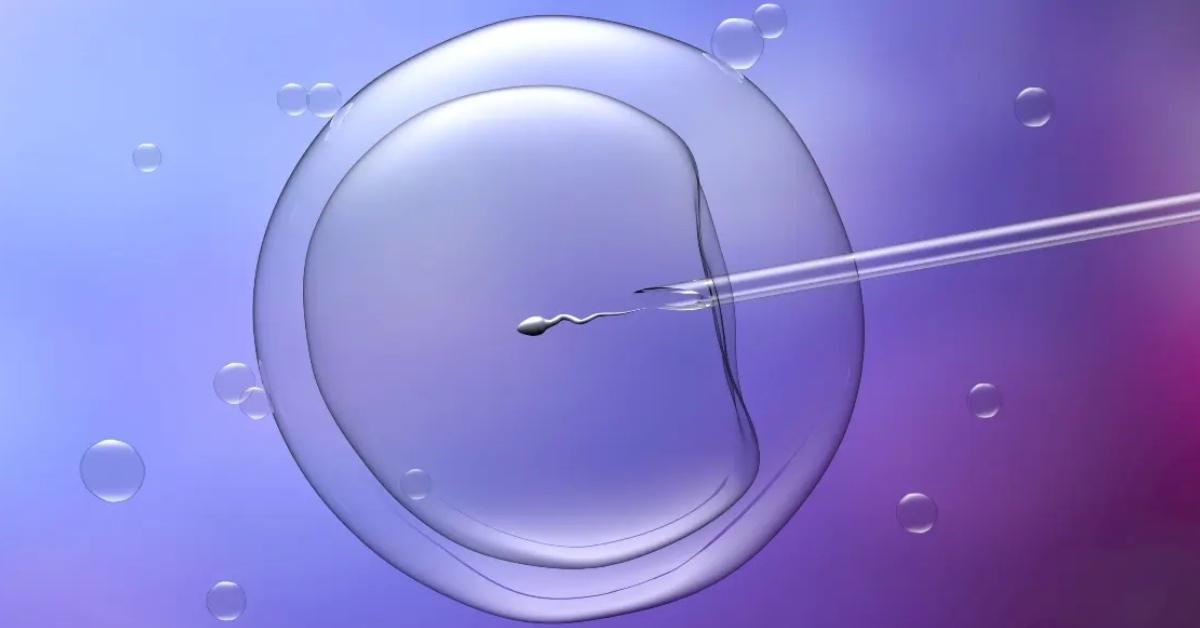Insurance Coverage for Egg Freezing — Breaking Down the Benefits
There are 16 states that require insurance companies to cover some of the costs associated with fertility treatments, egg freezing being one of them.
April 28 2023, Updated 4:37 p.m. ET

You may not be ready to have children yet because you'd prefer to wait until you're more secure in your career or meet the person of your dreams. So, freezing your eggs may be a good option until you're ready to start a family.
But freezing your eggs can be an expensive process, although it's hard to put a price on your future family. Does insurance cover any of the expenses? Keep reading for all the details.

Is egg freezing covered by insurance?
Extracting eggs from your ovaries and freezing them so they can be used at a later date can be expensive, and those costs can go up the older you get. Your health insurance may help with some, but not all, of those costs.
Whether your health insurance will cover part of the costs for egg freezing depends on a couple of circumstances. Many insurance companies consider egg freezing an elective procedure, which means you are left footing most of the bill on your own.
However, if you have fertility issues, there may be ways to have at least part of the egg-freezing costs covered by insurance, depending on where you live. There are 16 states that require insurance companies to cover the costs of fertility treatments, so if egg freezing is part of your fertility treatment, then some of the costs could be covered.
The states that require fertility treatment coverage are:
Arkansas
California
Connecticut
Delaware
Hawaii
Illinois
Louisiana
Maryland
Massachusetts
Montana
New Jersey
New York
Ohio
Rhode Island
Texas
West Virginia
You're in luck if you work for an employer that offers to cover the cost of egg freezing. More companies, especially in the tech world, offer coverage for egg freezing to attract female employees and encourage them to delay having children.
How expensive is it to freeze my eggs?
The cost to freeze your eggs can range between $15,000 and $20,000 per cycle, according to FertilityIQ. On average, it takes about 2.1 cycles to get enough eggs. This cost doesn’t include medications, which can cost another $5,000, or storage fees, which costs about $500 per year, FertilityIQ estimates.
Egg extraction and freezing costs increase the older a woman gets because you’ll need more eggs stored to ensure that one will be successfully fertilized and result in a live birth.
What if I can’t afford to freeze my eggs?
If you can’t afford the cost to freeze your eggs, you may be able to find a fertility clinic that will offer to work with you to reduce the costs or provide some type of financial assistance in covering the procedure. The national non-profit Fertility Within Reach provides a list of organizations and companies that offer grants or discounts for fertility procedures like egg freezing.

A sperm is inserted into an egg.
How do I know if my insurance covers egg freezing or IVF?
You can find out if your insurance company covers egg freezing or in vitro fertilization (IVF) by checking your policy’s summary of benefits. IVF is the procedure where an egg is fertilized outside of a woman’s body and then returned to the womb to develop. If you decide to freeze your eggs, you’ll eventually need IVF when you choose to have a baby.
How does the egg freezing process work?
If you have settled on freezing your eggs, the Rocky Mountain Fertility Center says the process starts with you receiving fertility medicines used to boost your egg production. After the eggs “mature,” they are extracted from the ovaries using a long needle. The facility says it's generally done as an outpatient procedure, though you will be sedated.
Once the eggs have been separated from follicular fluid, they are then vitrified, which is “a fast freezing process.” However, the fertility center does mention that some facilities will use a “slow freeze” method instead.
